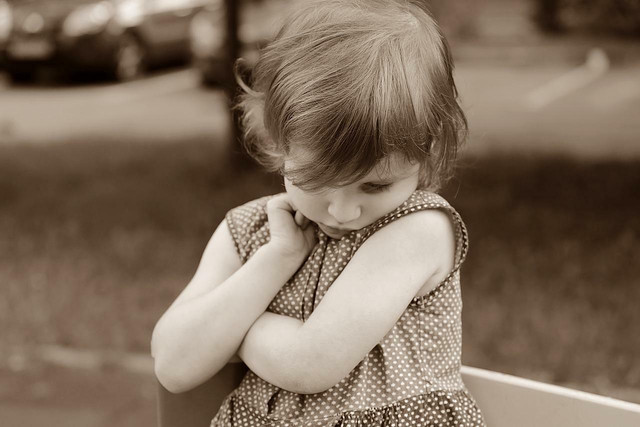
Introverts are seen as shy, not very sociable and are often labeled “loners”. But is that really true?
Introversion is a personality trait that describes how a person interacts with their social environment. Introversion is the opposite of extraversion. Those who are considered extroverts draw their energy from being with other people. The exchange with others stimulates them.
Whereas introverts are more likely to recharge their batteries when they are alone. They direct their gaze more inwards and like to stay in the background. Individuals who exhibit characteristics of both personality traits are described as ambiverted. Psychiatrist Carl Gustav Jung described these definitions in his typology of personalities.
Socially, many associate introversion with something negative. It can often seem strange when someone enjoys being alone or holding back in social situations. In addition, our society is more characterized by extroverted norms. If people actively approach others, communicate a lot and can move confidently in their social environment, this brings them advantages at school and at work, for example.
Extroverts, who often display active, enthusiastic, and dominant behaviors, tend to be more respected than reserved types in social and professional situations. No wonder, then, that many negative myths surround introversion and that self-doubt can often arise among introverts. Introversion can often be an advantage.
1. Myth: Introversion means shyness

(Photo: CC0 / Pixabay / LuidmilaKot)
The most well-known myth is that all introverts are shy. Contrary to popular belief, introversion and shyness are not the same.
Shy people often appear insecure and avoid contact with people they do not know. The fear of being judged negatively or being a nuisance is often behind it. However, shyness is a learned behavior and not a personality trait like introversion is. Shyness can develop from bad experiences, such as rejection. Introverts, on the other hand, naturally like to be alone and tend to observe before actively participating in a conversation, for example.
Also, introverts do better when they only interact with people in small doses. Psychologist Jule Specht describes it like this: “Introverts are people who like to withdraw, while shy people might like to be more sociable, but don’t dare.”
Introverts also don’t like to use the phone as much as many shy people do. But that has more to do with the fact that introverts are better at expressing themselves in writing. Of course, there are also shy introverts – just like there are shy extroverts who initially feel uncomfortable and insecure around strangers.
2. Introverts are not sociable

(Photo: CC0 / Pixabay / ktphotography)
Anyone who has the personality trait introversion prefers to just sit around at home and avoid parties and concerts – this is also often heard about introverts. Of course, people who are considered introverted also like to go to a bar or to dance. However, on their terms. For example, in these situations it is enough for them to just talk to their own friends or just stay for a short time. Often they also need a balance afterwards and, for example, prefer to spend the next day alone at home and enjoy this time just for themselves. “Introversion is not a skill flaw, but a preference for how I shape a situation,” explains personality psychologist Jule Specht.
So just because you’re an introvert doesn’t mean you’re too antisocial or antisocial. You just need more frequent breaks. If the social batteries of introverts are recharged by being alone, they also like to meet up with friends again or look forward to the next party.
And: Not all people who are attributed to introversion are the same. Some have a larger circle of friends than others and socialize more often – it has something to do with individuality and personal preferences.
3. Introverts are all the same

(Photo: CC0 / Pixabay / Pexels)
Which brings us to the next point: not all introversions are the same, even if introverts are often pigeonholed as loners. Introversion can take many different forms. In one study, scientists split introversion into four types:
- Social introversion is when people prefer being alone or hanging out with just a few people more than most other people. The reason is that they feel drained more quickly from being around a lot of people.
- Thoughtful introversion describes when people can draw a lot of ideas and creativity from their solitude. For them, it’s less about recharging social batteries and more about benefiting from turning to one’s inner self. People in these groups often seem to brood and switch off mentally. However, they are very concerned with their own emotional world.
- People with fearful introversion appear reserved and sometimes frightened. They avoid situations that can make them nervous. This behavior serves them as a protective mechanism and not because they do not feel comfortable around other people.
- People with reserved introversion are considered cautious and pragmatic. Before telling a company, they first weigh the pros and cons. Spontaneous actions are rather rare for them.
4. Introverts are unhappy

(Photo: CC0 / Pixabay / sasint)
Spending so much time alone must be lonely and unhappy, right? Many introverts are also confronted with this cliché. This does not have to be correct either. Being alone does not necessarily mean loneliness. While being alone is a state, loneliness is a feeling.
Whether being alone is a positive or a negative depends on the person who is in that state. However, since many introverts like to be alone and draw strength and creativity from quiet, this does not automatically make them unhappy. A study came to the conclusion that the beginning of the corona pandemic was less stressful for introverts than for extroverts. Since introverts are used to spending more time alone, the lockdown didn’t bother them as much.
Introversion can also be a strength. Introverts are not only good at being alone, they are often characterized by their good powers of observation and reliability. Even if extroverts are more outgoing, introverts are just as essential to our society. It is also always important that you live independently: no matter what others say, you have to feel comfortable.
Read more on Techzle.com:
- Positive Psychology: Its Approach and Key Messages
- Fear of failure: Effective tips and strategies against it
- Taking time out: 6 ways to gain some distance